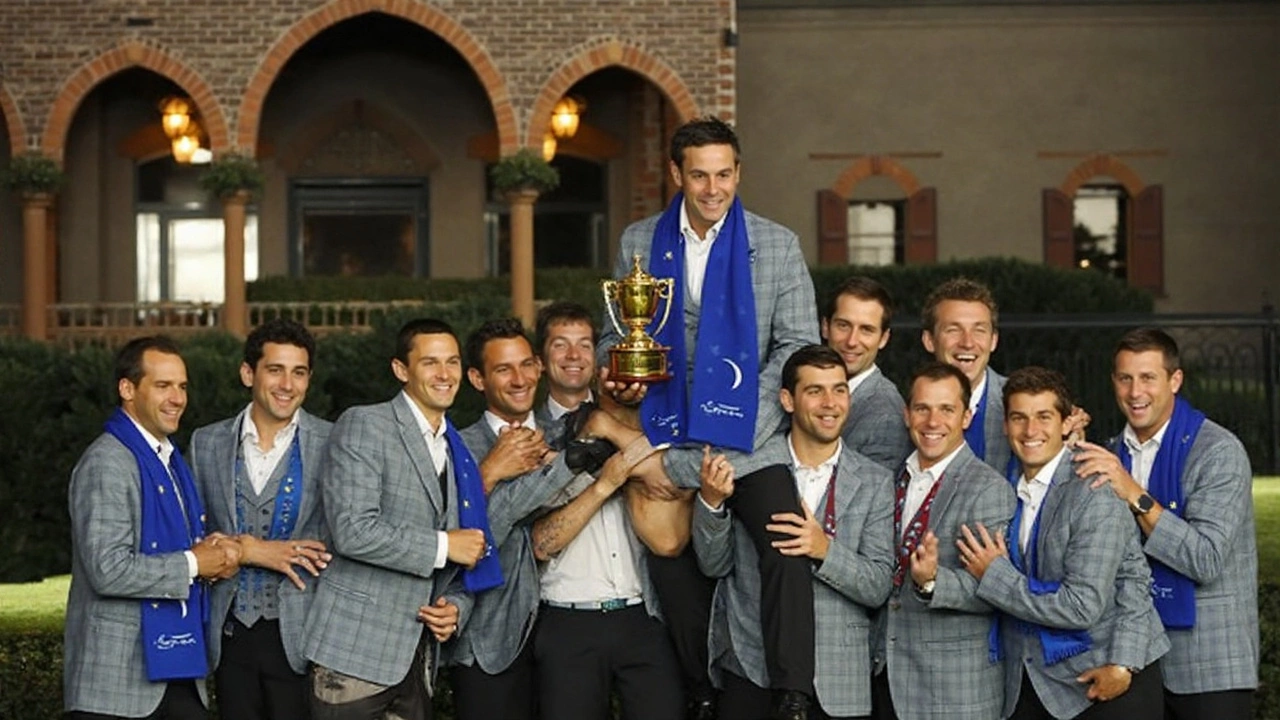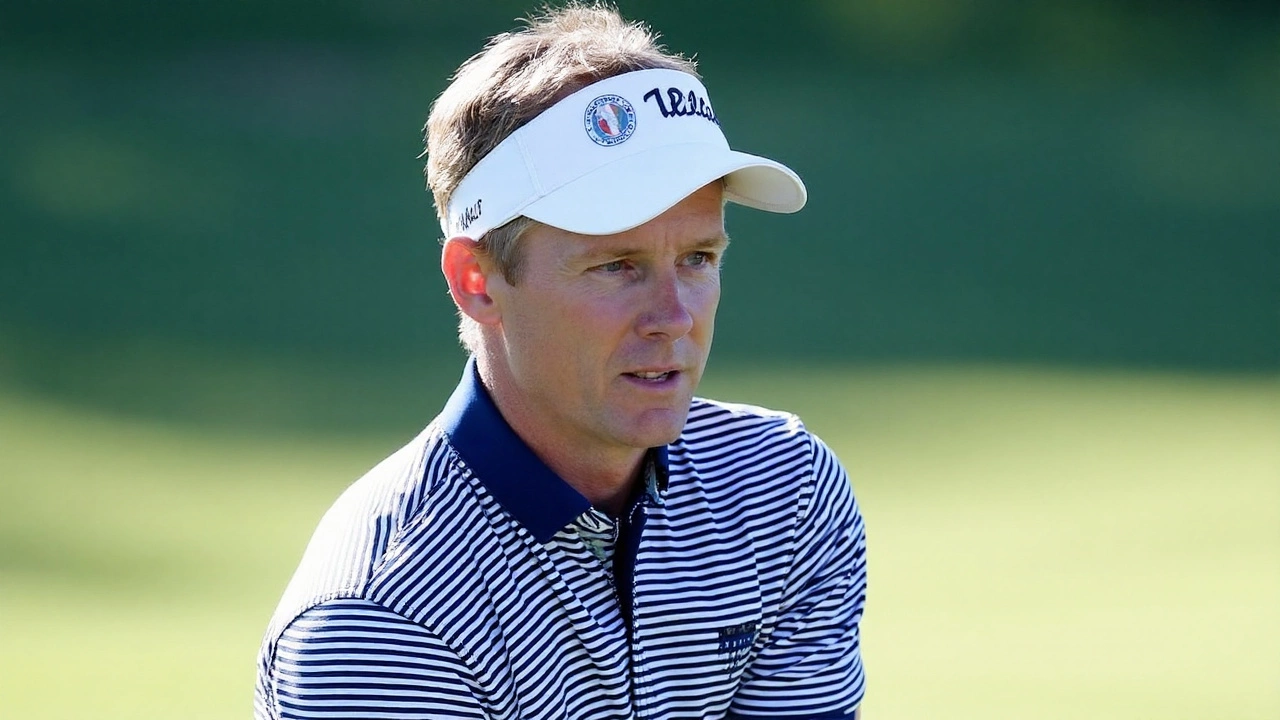Luke Donald’s provocative warning
During a media session at Bethpage Black, European Ryder Cup captain Luke Donald sparked a fresh firestorm by suggesting that U.S. supporters could quickly become hostile toward their own squad if the heavily compensated players fail to deliver on the day. Donald pointed to the new $500,000 payment slated for every Team USA member and warned that many fans, especially the New York crowd, might view the money as a double‑edged sword.
He explained that in the weeks following last year’s event in Rome, the European camp held an internal discussion after the American payment plan leaked online. The consensus, according to Donald, was clear: European players want to earn a spot on the team for the honor of representing their continent, not for a paycheck. "We’re cut from a different cloth," he said, emphasizing that the memory of hoisting the trophy outweighs any financial incentive.

Why the payout matters
The United States Golf Association (USGA) announced the $500,000 participation fee earlier this spring, marking the first time the tournament has moved away from its long‑standing amateur ethos. Historically, the Ryder Cup was a pride‑driven contest where players competed for national glory, often turning down lucrative offers to stay true to the event’s spirit.
Proponents of the new payment structure argue that modern professional golf is already a business. They say the payout simply acknowledges the time, travel, and preparation required for a biennial competition that draws millions of viewers worldwide. Critics, however, contend that putting a price tag on patriotism undermines the very heart of the event.
Donald’s comments have amplified that criticism. He noted that European golfers have long traveled the PGA Tour circuit, but many still see the Ryder Cup as a chance to showcase continental camaraderie, not a chance to cash in. "When you step onto the fairway with a flag sewn onto your shirt, the memory lasts a lifetime," he remarked.
In contrast, several American stars have openly discussed the financial boost as a welcome addition to their earnings, especially given the demanding schedules they maintain. Some analysts see the payout as a strategic move to keep top talent from skipping the event in favor of other lucrative tours.
The disparity in philosophy is now spilling over into public opinion. Social media threads are flooded with passionate arguments on both sides. One thread from a longtime U.S. fan argued that players have already earned millions through endorsements and tournament winnings, so a $500,000 bonus feels like a slap in the face of tradition.
Another fan from Europe countered that the prize money does not diminish the competition’s intensity; instead, it could raise the stakes and make the matches even more exciting. The debate has turned into a cultural conversation about how professional sports should balance heritage with modern economics.
Beyond the ideological clash, Donald’s warning about a potential fan backlash touches on the practical side of event management. New York’s local supporters are known for their vocal presence, and a lackluster showing could indeed turn the stadium atmosphere sour.
Security officials have been briefed on crowd dynamics, and organizers are preparing contingency plans should the audience’s mood shift dramatically. While stadiums have weathered intense reactions in the past, the combination of high expectations and a sizable paycheck has added an extra layer of tension.
From a performance perspective, the payout could create additional pressure on U.S. players. Psychologists note that when athletes are reminded of a financial stake, their focus can either sharpen or become over‑anxious. The former President of the PGA Tour’s Players’ Council expressed concern that the “pay‑to‑play” label might undermine the carefree swagger that has traditionally defined American teams.
Meanwhile, the European side appears unified. In a closed‑door meeting, the squad reiterated that they will play for the flag, not the fee. Several veterans highlighted past moments—like the dramatic 2018 comeback in Paris—when the sheer thrill of victory outweighed any material reward.
Even the European captain’s comments have drawn mixed reactions within his own camp. While most senior players sided with Donald’s stance, a few younger athletes hinted that money could aid in covering travel and family expenses, suggesting the lines are not as stark as portrayed.
As the 2025 event looms, the narrative has shifted from pure sport to a broader discussion about the role of money in professional competition. Journalists from across the globe are following the story, noting that the outcome of these talks could set a precedent for future international tournaments.
Ultimately, the clash unfolds on two fronts: the greens of Bethpage Black and the public arena of opinion. Whether the American crowd will cheer or jeer their team after a possible loss remains uncertain, but one thing is clear—this edition of the Ryder Cup will be remembered not only for its golf but also for the philosophical battle raging behind the scenes.



